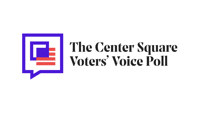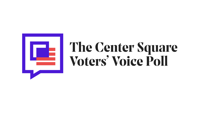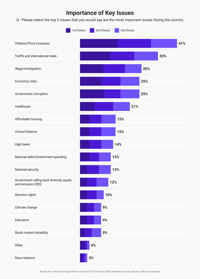The Biden Administration and House Republicans recently reached a bi-partisan deal to raise the debt ceiling. To reach the compromise, and keep the United States from a catastrophic debt default, the White House agreed to a series of spending cuts to social safety net programs, including the Supplemental Nutrition Assistance Program, or food stamps. (Here is a look at the American presidents who added the most to the national debt.)
SNAP is a federal program designed to help needy families and households afford food. The debt ceiling deal includes considerable changes to SNAP eligibility, expanding work requirements for older Americans, while also expanding access for veterans and homeless populations.
According to the latest available data from the U.S. Census Bureau’s American Community Survey, more than 15.8 million American households — or 12.4% of all households — received SNAP benefits in 2021. And exactly how many Americans would be directly impacted by the latest eligibility changes remains to be seen.
Of the three metro areas with available data in Mississippi, Hattiesburg has the highest SNAP recipiency rate. According to the ACS, 12.7% of all area households received SNAP benefits in 2021, below the 13.5% SNAP recipiency rate across the state as a whole.
Of all 366 metro areas nationwide with available data, Hattiesburg ranks as having the 166th highest SNAP recipiency rate.
| State | Metro area with highest SNAP recipiency rate | Metro area SNAP recipiency rate (%) | State SNAP recipiency rate (%) | Metro area(s) considered in state |
|---|---|---|---|---|
| Alabama | Mobile | 19.5 | 14.1 | 12 |
| Alaska | Anchorage | 8.7 | 10.4 | 1 |
| Arizona | Yuma | 22.3 | 11.2 | 7 |
| Arkansas | Fort Smith | 15.1 | 10.9 | 6 |
| California | El Centro | 25.9 | 12.0 | 26 |
| Colorado | Pueblo | 19.4 | 8.4 | 7 |
| Connecticut | New Haven-Milford | 14.4 | 11.7 | 4 |
| Delaware | Dover | 12.9 | 10.5 | 1 |
| Florida | Miami-Fort Lauderdale-Pompano Beach | 18.6 | 14.1 | 21 |
| Georgia | Columbus | 22.0 | 12.4 | 14 |
| Hawaii | Kahului-Wailuku-Lahaina | 11.4 | 12.6 | 2 |
| Idaho | Pocatello | 16.2 | 8.4 | 6 |
| Illinois | Decatur | 20.4 | 14.1 | 10 |
| Indiana | Kokomo | 13.8 | 9.4 | 11 |
| Iowa | Davenport-Moline-Rock Island | 15.8 | 9.8 | 7 |
| Kansas | Wichita | 10.0 | 7.3 | 2 |
| Kentucky | Bowling Green | 15.5 | 14.2 | 5 |
| Louisiana | Lake Charles | 22.9 | 19.0 | 9 |
| Maine | Lewiston-Auburn | 13.5 | 11.5 | 3 |
| Maryland | Cumberland | 18.0 | 12.6 | 5 |
| Massachusetts | Springfield | 20.1 | 14.6 | 5 |
| Michigan | Saginaw | 19.6 | 13.4 | 14 |
| Minnesota | Duluth | 9.4 | 7.9 | 5 |
| Mississippi | Hattiesburg | 12.7 | 13.5 | 3 |
| Missouri | St. Joseph | 12.3 | 10.2 | 8 |
| Montana | Great Falls | 11.5 | 8.6 | 3 |
| Nebraska | Omaha-Council Bluffs | 9.2 | 8.5 | 3 |
| Nevada | Las Vegas-Henderson-Paradise | 14.3 | 13.6 | 2 |
| New Hampshire | Manchester-Nashua | 5.9 | 6.0 | 1 |
| New Jersey | Vineland-Bridgeton | 15.9 | 9.1 | 3 |
| New Mexico | Farmington | 28.4 | 20.7 | 4 |
| New York | Buffalo-Cheektowaga | 16.4 | 15.0 | 12 |
| North Carolina | Goldsboro | 25.5 | 13.9 | 15 |
| North Dakota | Fargo | 6.6 | 6.2 | 2 |
| Ohio | Lima | 20.1 | 13.0 | 11 |
| Oklahoma | Lawton | 13.4 | 13.8 | 3 |
| Oregon | Grants Pass | 24.7 | 15.9 | 8 |
| Pennsylvania | Erie | 19.6 | 14.1 | 18 |
| Rhode Island | Providence-Warwick | 16.4 | 14.9 | 1 |
| South Carolina | Florence | 20.9 | 11.1 | 8 |
| South Dakota | Rapid City | 7.8 | 8.0 | 2 |
| Tennessee | Kingsport-Bristol | 15.3 | 11.9 | 10 |
| Texas | McAllen-Edinburg-Mission | 30.9 | 12.2 | 23 |
| Utah | Ogden-Clearfield | 6.3 | 5.6 | 4 |
| Vermont | Burlington-South Burlington | 9.9 | 10.9 | 1 |
| Virginia | Virginia Beach-Norfolk-Newport News | 10.6 | 8.8 | 9 |
| Washington | Yakima | 23.9 | 12.3 | 10 |
| West Virginia | Beckley | 22.1 | 18.3 | 7 |
| Wisconsin | Milwaukee-Waukesha | 15.6 | 11.8 | 12 |
| Wyoming | N/A | N/A | 5.5 | 0 |




















































